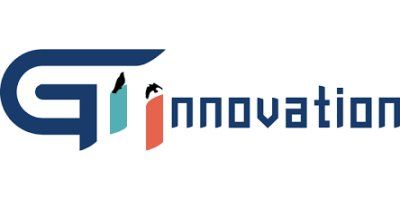

- Home
- Companies
- GI Innovation
- News
- GI Innovation enters into clinical ...
GI Innovation enters into clinical collaboration with AstraZeneca to explore Immuno-oncology GI-101 • Imfinzi® Combination Therapy
GI Innovation, Inc., (CEO, Jun Ho Hong) announced that GI Innovation signed a clinical supply collaboration agreement with global biopharmaceutical company AstraZeneca for development of GI-101 and Imfinzi® combination therapy.
Under this agreement, GI Innovation and AstraZeneca will conduct a clinical trial assessing triplet combination regimen of GI-101, Imfinzi® (durvalumab) and chemotherapy for the treatment of small cell lung cancer, gastric/gastroesophageal junction cancer, biliary tract cancer and triple-negative breast cancer in USA, Australia and South Korea.
AstraZeneca will provide Imfinzi® and expertise in developing immunotherapy for successful completion of a clinical trial by co-designing and developing a plan for the clinical trial.
Through this effort, GI Innovation and AstraZeneca aim to treat patients with metastatic and advanced solid tumors who have limited treatment options available to them.
Despite the introduction of checkpoint inhibitors into the clinic, there are still many patients for which there is unmet need. For example, some patients with small cell lung cancer, gastric/gastroesophageal junction cancer, biliary tract cancer and triple-negative breast cancer are resistant to conventional checkpoint inhibitor monotherapy, as their low immune infiltrates or lack of antigen recognition prevent them from properly respond to the therapy. More recently, combining chemotherapy and checkpoint therapy has yielded encouraging results. One hallmark example of this treatment approach is the combination of Imfinzi® and chemotherapy which is currently approved to treat patients with extensive-stage small cell lung cancer in the first line setting. Now, GI Innovation aims to further enhance the therapeutic effect by adding GI-101 to the chemotherapy and Imfinzi® regimen.
GI-101 contains an IL-2 domain, which can directly induce the activation and proliferation of cytotoxic T cells (CTL) and natural killer cells (NK) in the tumor microenvironment. GI-101 can further aid immune activation against tumor cells through its CD80 domain through CD80-CD28 interactions which leads to cytotoxic T cell activation and restraining CTLA-4, a immune checkpoint molecule, on regulatory T cells thereby inhibiting its immune-suppressive function.
Such immunomodulatory effects of GI-101 hold great potential to combine with Imfinzi® which targets another type of immune checkpoint molecule, PD-L1.
By applying adaptive, basket trial design, the upcoming study is designed to efficiently investigate the therapeutic activity of the triplet combination regimen in four different indications of solid cancer. In particular, the interim results can provide early insights to inform ongoing patient recruitment for each indication. GI Innovation plans to open approximately 20 sites in the US, Australia and South Korea for efficient conduction of the study.
Nari Yun, Head of Clinical Division, VP of GI Innovation, said, “GI-101, as a bispecific fusion protein, has multi-faceted immunomodulating functions impacting the proliferation and activation of T cells and NK cells. Through distinct mechanisms, combining Imfinzi®, chemotherapy and GI-101 is designed to reinvigorate the exhausted immune cells. We will expedite the development of this combination that is designed to deliver meaningful clinical benefit”.
Myoung Ho Jang, the inventor of GI-101, said, “We are excited to enter into this clinical collaboration with a global biopharmaceutical company. Through this agreement, we will be obtaining GI-101’s clinical data with anti-PDL1 therapy, as well as chemotherapy. We are excited to develop GI-101 with Imfinzi®, through which we aim to bring hope to patients who are fighting cancer.”
